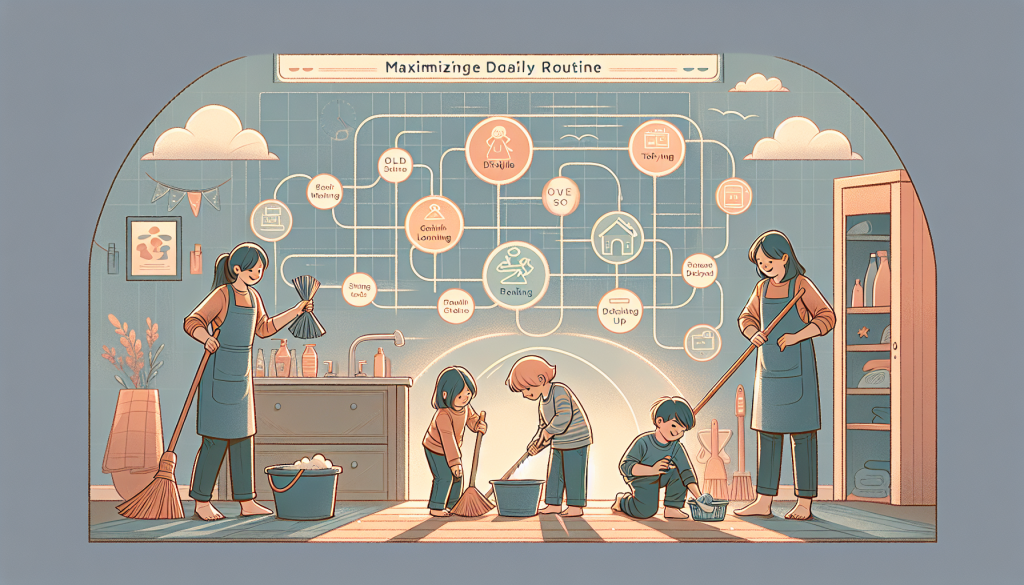“`html
Why Chores Are Important for Child Development
As parents, we all want our children to grow into responsible, disciplined, and self-reliant adults. But did you know that something as simple as assigning chores to kids can play a critical role in fostering these qualities? Chores aren’t just about keeping the house tidy—they’re a powerful way to teach kids valuable life skills, encourage independence, and build their confidence. In this article, we’ll explore why chores are important for child development and how you can incorporate them into your parenting strategy.
The Role of Chores in Child Development
Chores may seem like small, mundane tasks, but their impact on children’s growth is anything but trivial. Research shows that giving kids age-appropriate chores helps them develop essential skills that are beneficial throughout their lives. Let’s break down some of the key reasons why chores kids do are so vital for their development.
1. Building Responsibility
One of the most obvious benefits of assigning chores is that it teaches children responsibility. When kids have specific tasks to complete, they learn that their actions (or lack thereof) have consequences. For example, if your child is responsible for setting the dinner table and forgets to do so, the family meal might be delayed. These small lessons in accountability lay the groundwork for bigger responsibilities as they grow older.
2. Developing Discipline and Time Management
Completing chores on time requires kids to learn discipline and time management. Whether it’s making their bed in the morning or cleaning their room before bedtime, these tasks teach kids how to manage their time effectively. Over time, they begin to understand the importance of meeting deadlines and prioritizing tasks, skills that are crucial for academic and professional success.
3. Fostering a Sense of Autonomy
According to principles of cognitive-behavioral therapy (CBT), children have an innate need for autonomy—the ability to feel in control of their own lives. Assigning chores gives kids a sense of ownership and agency. When they successfully complete tasks, they feel empowered and capable, which boosts their self-esteem and encourages them to take on more challenges.
4. Enhancing Family Dynamics
When everyone in the family contributes to household chores, it creates a sense of teamwork and shared responsibility. Children learn that being part of a family means working together to achieve common goals. This fosters stronger bonds and teaches kids the importance of cooperation and empathy.
5. Preparing for Adulthood
The chores kids do today are practice for the responsibilities they’ll face as adults. Tasks like doing laundry, cooking, or budgeting prepare them for independent living. These skills not only make them self-sufficient but also boost their confidence as they navigate the challenges of adulthood.
Psychological Benefits of Chores
Beyond practical skills, chores also address several psychological needs:
- Need for safety: When children see their parents maintaining a clean and organized home, they feel secure in their environment.
- Need for competence: Successfully completing tasks gives kids a sense of accomplishment and competence.
- Need for connection: Working together on household tasks strengthens the parent-child bond.
Practical Recommendations for Parents
Now that we’ve covered why chores are important, let’s look at some practical ways to incorporate them into your child’s routine. Here are some tips to make chores a positive and productive experience:
1. Start Early and Keep It Age-Appropriate
Even toddlers can participate in simple tasks like putting toys away or wiping up spills. As your child grows older, gradually introduce more complex chores. For example:
- Ages 2-3: Picking up toys, putting clothes in a hamper.
- Ages 4-6: Making the bed, setting the table, watering plants.
- Ages 7-9: Vacuuming, folding laundry, feeding pets.
- Ages 10+: Cooking simple meals, mowing the lawn, babysitting younger siblings.
2. Use Positive Reinforcement
Rewarding your child for completing chores can be a great motivator. Rewards don’t have to be monetary; they can include extra playtime, a special outing, or simply words of praise. Positive reinforcement helps kids associate chores with a sense of accomplishment.
3. Create a Chore Chart
A visual chore chart can help kids stay organized and track their responsibilities. It’s also a great way to ensure fairness if you have multiple children, as everyone can see who is responsible for which tasks.
4. Make It Fun
Chores don’t have to feel like a punishment. Turn on some music, set a timer to make it a race, or work alongside your child to make the experience more enjoyable. The goal is to create positive associations with household tasks.
5. Encourage Teamwork
When possible, work on chores together as a family. This not only makes the tasks go faster but also gives you an opportunity to bond with your child. For example, you could cook dinner together or tackle a big cleaning project as a team.
Conclusion
Chores are more than just a way to keep your home tidy—they’re an essential tool for teaching kids responsibility, discipline, and life skills. By assigning age-appropriate tasks, using positive reinforcement, and fostering a sense of teamwork, you can help your child develop into a confident and capable individual. Remember, the small lessons they learn from chores today will shape the adults they become tomorrow.
If you’re looking for more parenting tips and insights, check out some of the other helpful resources on the Child Mind website. Together, we can raise a generation of responsible, disciplined, and compassionate individuals.
“`

